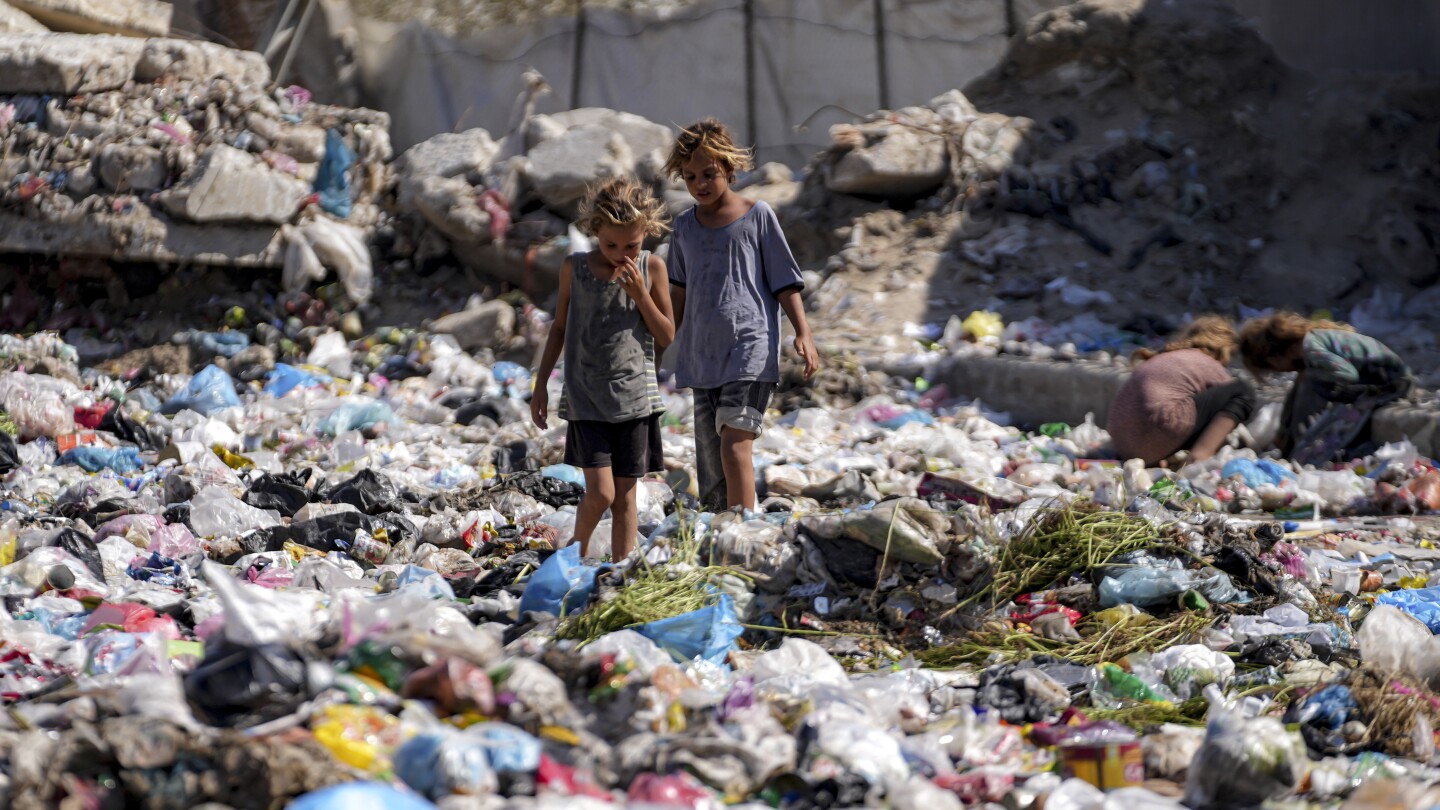UNITED NATIONS (AP) — The U.N. chief said Monday that the United Nations has offered to monitor any cease-fire in Gaza and demanded an end to the worst death and destruction he has seen in his more than seven-year tenure.
Secretary-General Antonio Guterres said in an interview with The Associated Press that it’s “unrealistic” to think the U.N. could play a role in Gaza’s future, either by administering the territory or providing a peacekeeping force, because Israel is unlikely to accept a U.N. role.
But he said “the U.N. will be available to support any cease-fire.” The United Nations has had a military monitoring mission in the Middle East, known as UNTSO, since 1948, and he said, “from our side, this was one of the hypotheses that we’ve put on the table.”
“Of course, we’ll be ready to do whatever the international community asked for us,” Guterres said. “The question is whether the parties would accept it, and in particular whether Israel would accept it.”
Israel’s military assault on Gaza, triggered by Hamas’ attacks in southern Israel on Oct. 7, has stretched for 11 months, with recent cease-fire talks failing to reach a breakthrough and violence in the West Bank reaching new highs.
Stressing the urgency of a cease-fire now, Guterres said: “The level of suffering we are witnessing in Gaza is unprecedented in my mandate as secretary-general of the United Nations. I’ve never seen such a level of death and destruction as we are seeing in Gaza in the last few months.”
The war has killed over 40,900 Palestinians, according to Gaza’s Health Ministry, which does not differentiate between fighters and civilians in its count. The war has caused vast destruction and displaced around 90% of Gaza’s population of 2.3 million, often multiple times.
Israeli Prime Minister Benjamin Netanyahu and his government have accused the U.N. of being anti-Israel and have been highly critical of U.N. humanitarian operations in Gaza. Facing protests at home and increasing urgency from allies, Netanyahu has pushed back against pressure for a cease-fire deal and declared that “no one will preach to me.”
Looking beyond a cease-fire, Guterres stressed that a two-state solution to the decades-old Israeli-Palestinian conflict is not only viable, “it’s the only solution.”
The United States and others support Palestinian statehood, but Netanyahu, who is leading the most conservative government in Israel’s history, has opposed calls for a two-state solution.
Guterres asked rhetorically whether the alternative is viable.
“It means that you have 5 million Palestinians living there without any rights in a state,” he said. “Is it possible? Can we accept an idea similar to what we had in South Africa in the past?”
He was referring to South Africa’s apartheid system from 1948 until the early 1990s when its minority white population marginalized and segregated people of color, especially Black people.
“I do not think you can have two peoples living together if they are not in a basis of equality, and if they are not in a basis of respect — mutual respect of their rights,” Guterres said. “So the two-state solution is, in my opinion, a must if we want to have peace in the Middle East.”

